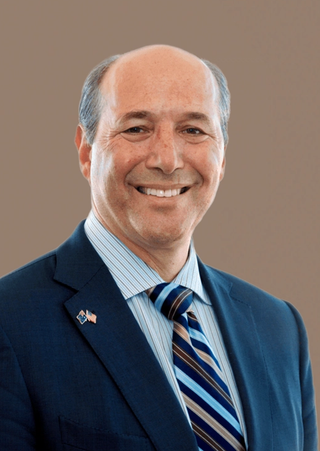The Australian
By Jeffrey Bleich
Last week we celebrated the 65th anniversary of the American Australian Association, an organisation with a simple mission: to advance the US's and Australia's shared values. It gives grants to our best and brightest young people to study at each other's universities, and it has established centres for them to advance our nations' efforts at the US Studies Centre at the University of Sydney and the USAsia Centre at the University of Western Australia.
Most impressive of all, the AAA's members and supporters are volunteers who give their time, their money, their talent and their mentorship to the next generation for free. They expect nothing in return — only the chance to contribute to a greater cause.
There is a word for this. It is called "citizenship."
Citizenship is more than a status — it is a state of mind and way of moving through this world. Sometimes it is those who are not citizens who recognise this best, and help reveal it to others. The most moving ceremonies that I attended at the White House were those in which the president swore in a new set of American citizens — men and women who had come from all across the world, and had struggled and sacrificed to become one with America. Indeed, the people who have invested the most in advancing the US and Australia often are not the children of Americans or Australians. The US President is the son of a Kenyan. Both the Prime Minister and the Opposition Leader were born in Britain.
What binds these leaders is not heredity or mere geography or the accident of their birth — it is a set of ideals handed down to them. Their parents came to our nations — and they now devote themselves to serving our nations — because they believe in the ideals for which we stand.
Americans and Australians believe in a nation where every person has the right to choose their leaders, and where leaders serve the people. We believe that every citizen's vote counts equally — that no vote is more important or carries greater weight than another. We seek a land where each person can say what they believe, worship as they choose or choose not to worship, and use whatever gifts they possess to be fulfilled in their life. We believe in free and fair trade and the freedom to travel. And most of all, we believe in one another — in the power of people. Indeed, we believe that these are choices to which every person on this planet is entitled. Citizens of the US and Australia devote themselves to securing these rights for ourselves and for the people of every nation.
That is the core of the American Australian Association. It is an organisation that honours these essential ties that bind us. This year the AAA honoured two extraordinary people who embody those values, as civic leaders and as global statesmen. Andrew Liveris, a child of Greek parents, was raised in Darwin and is chief executive of Dow and a key adviser to the US President. Dick Warburton, a son of Australia, heads several US-based global boards and served as chief executive of Dupont in Australia.
Their success does not belong to one nation and their ideals transcend borders. Their citizenship is reflected in their careers. As US senator Adlai Stevenson once said, patriotism and citizenship are not "short, frenzied outbursts of emotion, but the tranquil and steady dedication of a lifetime".
Through their efforts, and the efforts of all AAA members, they are helping produce the next generation of global citizens: the AAA Education Fellows. These fellows have been performing cutting-edge research on cancer, climate change, extending human life, improving health and protecting our planet. Wherever they work they reflect the view that our daily efforts must be devoted to something greater — to make the world better, more beautiful and more closely connected. As president John Adams said: "Remember that the end for study is to be a good person and a useful citizen."
On its 65th anniversary, I wish to thank the AAA for producing our most valuable of all resources — good people and useful citizens.
This article was originally published at The Australian





